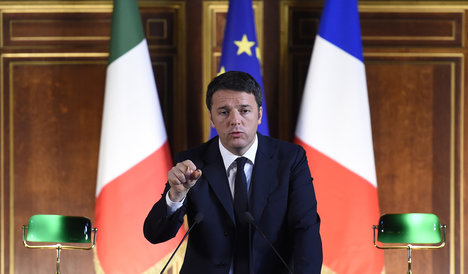“Intervening in Libya is not on the agenda at the moment,” news agency Ansa reported him as saying.
“We would rue the consequences of any intervention without a clear strategy,” added the premier, who has been reluctant to commit to military action against Isis targets as other European leaders have done in the wake of the Paris attacks.
Instead, Renzi has promised to increase security spending and invest in cultural measures to reduce the threat the Islamic militants pose to Italy.
Still, after a meeting with French President Francois Hollande last Thursday, Renzi described Libya as 'a priority'. The comments fuelled speculation that Italy might take military action to help liberate the northern city of Sirte, which is a stronghold for Isis in the country.
“Newspapers change topic every 24 hours, but foreign policy does not,” Renzi said.
“Politics is not left to emotional responses, instead it requires constant awareness. I don't think it's excessive caution: it's wisdom and I'm proud of it.”



 Please whitelist us to continue reading.
Please whitelist us to continue reading.
Member comments